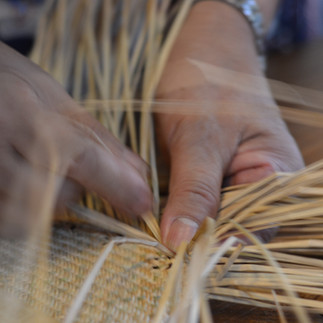Eco-Dictionary: What does sustainable, green, eco-friendly mean?
- Susan Van Meter
- Mar 1, 2022
- 3 min read
Updated: Sep 19, 2022

With so many companies, institutions, people, etc. claiming to be environmentally conscious nowadays - I thought I’d put together this mini eco-dictionary to help us understand some of the key terms such as sustainability, green, eco-friendly and ethical.
Especially in relation to our homes and interior design, allowing us to be better informed when we are specifying and buying product. I've included some photos of nature as a lovely reminder to what sustainable principles design strives to protect.

Sustainable & Sustainability
Sustainability means the item or action is generating environmental, social and economic benefits, while not using up too many resources or causing pollution.
Sustainability is the most specifically defined of all three. At its core it comes down to the three P’s: people, planet and profit which are the social, environmental, and economic benefits protecting public health and environment over their whole life cycle, and after. Sustainability sets the focus on the future.
Compared to ‘”green” and “eco-friendly,” sustainability has much higher standards. Sustainability includes eco-friendly activities and green products, but green doesn’t necessarily mean sustainable. For instance, a product made from renewable resources is considered green, yet if a life-cycle analysis shows that it required a lot of energy to manufacture and ship to you, and if there isn’t a proper way to dispose of the product, then it’s not considered sustainable.
Sustainable interior design is about creating homes with emphasis on the health and wellness of families, individuals and our planet, by using design principles, products and materials that help reduce the use of chemicals, pollution, waste and reduce energy consumption.

Eco-Friendly
Eco-friendly means earth-friendly or not harmful to the environment.
Not as broad as 'green', this term most commonly refers to products that contribute to green living or practices that do not harm the planet.
Eco-friendly products and practices prevent contributions to air, water and land pollution.
Making a truly eco-friendly product keeps both environmental and human safety in mind. At a minimum, the product is non-toxic.

Green
Green is related to almost anything that benefits the environment.
Green is more broad than eco-friendly. The term Green has become more of a trendy word for people that are interested in helping the planet. Going green means improving the way we produce, buy, use, and throw away products. It means contributing less to air pollution and to landfills. Going green means doing things in ways that are friendly to the environment.
Another term: GREENWASHING, meaning some companies often label their products "eco-friendly" or "environmentally friendly" without them truly being so. That is why it's important to research and investigate the true provenance and manufacturing processes of a product or practice.
On a different note, I was interested to see the spiritual meaning of the colour Green: represents abundance, renewal, growth and nature. A harmonising, balancing and calming colour. Green is also a healing colour that gives healing energy to the heart. An appropriate meaning when used in this context.

Ethical
Ethical sourcing is the process of ensuring the products being sourced and selected are produced and obtained in a responsible and sustainable way, ensuring working conditions are safe, just, and not exploitative.
As an example; part of a supply chain might engage in the use of a child labour, more than likely, well below the age of employment recognised by international standards and is therefore being exploited.
The bottom line here is - all of the terms - sustainable, eco-friendly, green all work to cause little or no damage to the environment and protect for the future. Ethically made products ensure humans are not exploited in the process.

Fair Trade

It started with the Fair trade movement that protected coffee, cocoa and tea producers from low international prices. This is a precisely defined term that only comes with certification from an international governing body, such as Fair Trade Certified, the Fair Trade Federation, Equal Exchange, or the World Fair Trade Organization.

Artisan
The term artisan stands as opposed to the industrial process of production. Artisan products are usually handmade and crafted with minimal automation by skilled workers. However, the fact that something was handmade doesn’t mean that it’s sustainable.

Clean, Nontoxic & Organic
Clean is the most broad and implies ingredients, natural or synthetic, that are not harmful to your health.
Nontoxic products are free from ingredients that can harm your health or the environment. When looking at products or materials for your home, we want to ensure their ingredients and manufacturing processes are nontoxic.
Organic is a legally defined term to certify food, beauty products, and other agricultural products as being produced in a very specific way – mainly, as free from synthetic chemicals that are harmful to the environment and humans.

#sustainbledesign #interiordesign #ecofriendly #greeninteriors #ethicaldesign #healthandwellness #healthyhomes















































Comments